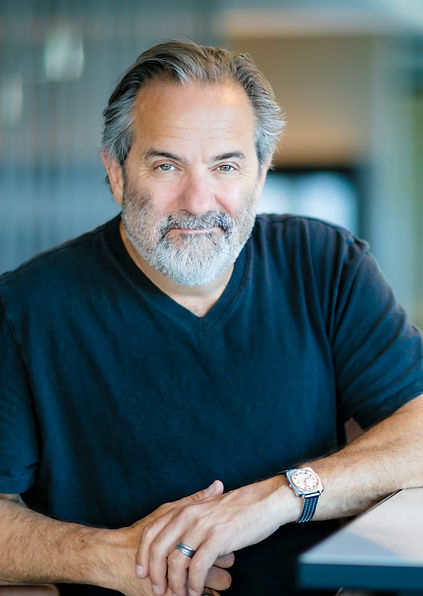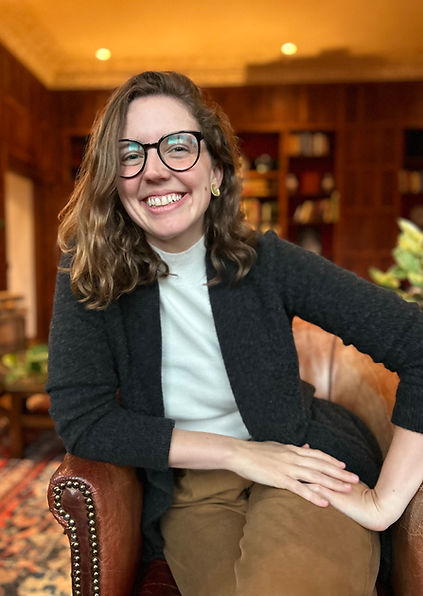
PRESENTATIONS
HONORING THE DIGNITY OF RISK: HOW AUTONOMY DRIVES GROWTH AND HEALING IN CLINICAL CARE
Ross Ellenhorn, PhD, MSW
Founder & CEO, Ellenhorn
Dignity has always been more than a value—it serves as the foundation of Ellenhorn’s clinical mission, shaping environments that support rather than control individuals and fostering relationships that honor personal autonomy. In this talk, Ellenhorn founder and CEO Ross Ellenhorn explores how dignity is not just an ethical principle but a clinical necessity: people don’t change unless they have the space and support to exercise self-determination, which lies at the heart of what we mean by human dignity. The presentation focuses particularly on the “dignity of risk”— the idea that the ability to take meaningful risks is essential to living a full life.
Ellenhorn has developed extensive experience in this area, working with individuals often labeled by other clinicians as too risky to live outside of restrictive environments. Yet by centering their approach on self-determination rather than surveillance or control, Ellenhorn has supported these individuals' growth in open settings. Too often, mental health care undermines the healing power of dignity in the name of safety, even though reams of theory and research show that growth and recovery depend on trusting people to navigate life’s uncertainties. Supporting that navigation through collaboration and community isn’t just humane—it’s the most effective path toward real and lasting change.
_edited_edited.jpg)
DIGNIFIED CARE FOR PEOPLE WITH CANCER THROUGH TIBETAN MIND-BODY-SPIRIT PRACTICES
Alejandro Chaoul, PhD
Scholar, researcher, author, teacher, and educator
Integrative medicine and health, is a field that has been growing in the last few decades as a humane whole-person approach, including body, mind, and spirit. For the past 25 years, MD Anderson Cancer Center’s Integrative Medicine Center has been a pioneer in Integrative oncology, and understanding that most importantly, a patient is a person—with dignity as a central value.
Trained in Tibetan mind-body yogic practices in monasteries in India and Nepal, Dr. Alejandro Chaoul has brought these practices to MD Anderson, through education, clinic and research, showing benefits in health and wellbeing, and spirituality.
This presentation, will be informed by the frameworks of integrative medicine, medical humanities, and a Buddhist perspective where we are all inter-connected by our shared humanity, and our potentiality of becoming enlightened (or the similar spiritual development category that makes sense to each person).

AND THEN: DIGNITY OF RISK
Dori Hutchinson, ScD, CPRP, CFRP
Executive Director of the Center for Psychiatric Rehabilitation at Boston University
Dignified care requires dignified risks: the risk of making changes to heal and recover and the risk of providing values-based healing opportunities for people that are often viewed as "inappropriate", or "non-reimbursable." Taking these risks can be uncomfortable and even terrifying for those of us who aspire to help and heal. This presentation will aim to inspire us to hold tight to our values of person-hood, choice, and empowerment while helping people live the full lives they want and deserve.

CENTERING DIGNITY: THE TRANSFORMATIONAL POWER OF HARM REDUCTION THERAPY
Andrew Tatarsky, PhD
Founder, Integrative Harm Reduction Psychotherapy
Traditional addiction treatment has typically required a commitment to abstinence as a condition for care with abstinence viewed as the primary measure of success. This abstinence-only model risks denying the dignity of people who struggle with substances and is largely responsible for the field’s failure to help many individuals struggling with substance use.
But what happens when therapy begins with respect, radical acceptance, and empathy instead of rigid conditions? This presentation introduces Andrew Tatarsky’s Integrative Harm Reduction Psychotherapy (IHRP), a therapeutic approach that centers the client’s dignity and demonstrates how this shift can radically improve treatment for this underserved population.
Participants will be introduced to the core principles of harm reduction as a therapeutic framework that honors individual dignity and fosters safety, trust and healing. Attendees will learn the nine therapeutic tasks of IHRP and practical tools for applying a client-centered approach to engagement, assessment, emotional regulation, working with ambivalence and supporting positive behavior change.

FROM LIVED EXPERIENCE TO
LASTING CHANGE: DESIGNING
FOR PATIENT DIGNITY
Lindsay Dow
Program Director, Silver Hill New York
Founder & CEO, Tetricus Labs
Too often, mental health care begins with the system's needs rather than the patient's—leaving individuals feeling disempowered, unheard, and uncertain about their own treatment. In this presentation, Lindsay Dow, Peer Specialist and Program Director at Silver Hill New York, shares her own journey navigating the mental health system, reflecting on what was missing: transparency, collaboration, and dignity.
Drawing from her lived experience and her work leading Silver Hill New York's innovative intensive outpatient programs, Lindsay will explore how placing patients at the center of their care transforms outcomes. Participants will explore multiple concrete methods for building more patient-centered systems of care, including: opening the "black box of clinical decision-making, giving patients a clear view of their treatment planning and progress, leveraging multiple types of data—from self-report to biometric measures—to track change in ways that are meaningful to the patient, and integrating peer support to provide authentic, realistic hope from those who have walked the same path.
.jpg)